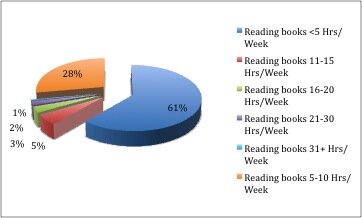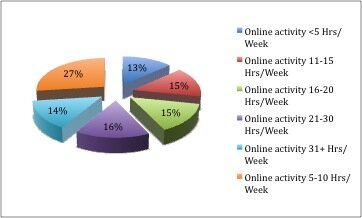 Teens and ebooks
Teens and ebooks
Recently I’ve been part of a couple of discussions about reading habits, and some interesting themes have begun to emerge. One, of course, is that ebooks are still a small fraction of books read by consumers (3.5%, according to Bowker’s PubTrack Consumer reports). And the fact that the primary audience for the Kindle and other readers seems to skew towards older generations (most likely because font size can be adjusted) leads many to conclude that teenagers and college-age kids are not adopting ebooks very quickly.
Which really runs counter to common sense, given how much time young people spend online. (I have a 16-year-old and an 11-year-old, both of whom have their MacBooks open whenever they’re in the house.)
Does this mean they have a weird retro fondness for paper books? Does it mean they’re not reading at all? What DOES it mean?
We know that they are not reading print newspapers. They’re getting the bulk of their news online – whether from newspaper sites, aggregation sites like Google News, or other online sources. We know they are not reading print magazines – again, they’re getting that content online, largely from bloggers, who are supplanting magazines at a rapid rate. We know that when they do research for school papers, they are doing it online unless teachers or school librarians steer them to the stacks to find material that’s not on the web.
Additionally, more students are using digital textbooks – PDFs or VitalSource or CourseSmart books (or in some cases, open-source textbooks) that integrate with their course management systems and include interactive features such as quizzes, labs, downloadable audio and video. The print textbook is gradually (very gradually but inexorably) being replaced by its digital counterpart.
So let’s look at reading for pleasure. Truthfully, kids spend much of their leisure time online – IMing friends, Facebooking, downloading music and movies, playing games. The time they spend reading for fun has been shrinking for quite some time.
But there are certain authors whose books transcend online temptations – J. K. Rowling, Stephanie Meyer, Jodi Picoult, to name a few.
Rowling’s an interesting case – she will not permit ebook versions of the Harry Potter series. So ebooks simply aren’t an option with her titles. As for the others, they are also bestselling authors, but their print books are heavily discounted in chain stores – a Stephanie Meyer hardcover can sell for as little as $12.95 when all’s said and done. So price – a huge issue with more mature readers, who pursue the ebook option in large part because of the $9.99 price point – isn’t really much of a concern for younger readers.
Then there’s the device itself. Teenagers and college students are not, unless they are required to, going to spend upwards of $250 on a dedicated reading device. Their parents are not going to buy them one (in this economy, anyway). They’ll play with reading on their iPhones and iPod Touches – and I suspect that’s where the younger ebook market will grow.
But it’s not there yet. Anecdotally, I can report that my teen continues to read her print books and swap them with friends (along with clothes, shoes, and everything else). Occasionally she’ll use her iPod Touch to access my Kindle account and "borrow" a book. But this is still a novelty for her.





